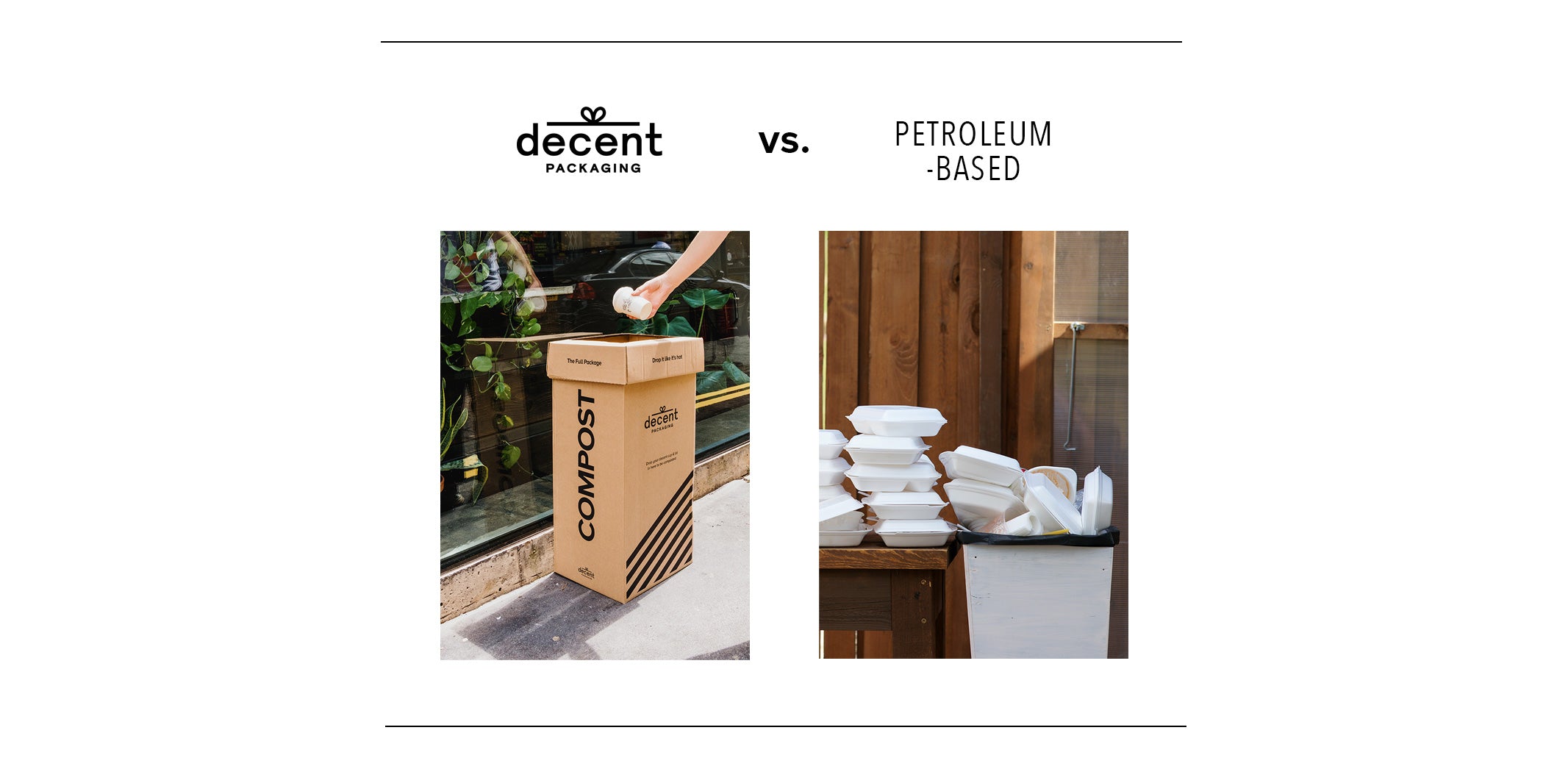11 May
Plant-based vs. petroleum-based: Which packaging is best?
It's what is on the inside that counts...
Everything we make at Decent Packaging we can unmake; everything is simply made from plants. From production to disposal, plant products are kinder to the environment; they fit in with the circle of natural life. Oil-based plastic products are the opposite. Sourcing oil is dangerous - oil spills, super toxic refineries, and a long history of unethical business practices afflict the fossil fuel industry. Globally, packaging needs to be better, and our contribution is making packaging from plants.

Decent Packaging
Low environmental impact. Using only plant-based materials that minimise their impact on the natural environment. We also became Carbon Zero Certified through Toitu Envirocare, eliminating our carbon footprint through purchasing carbon credits to plant trees and help install solar energy stations around the world.
Compostable. Being compostable means our products can decompose back into their organic components. This reduces their impact on the environment, making them more sustainable. All of our products are certified commercially compostable and some are even Certified Home compostable.
Renewable and recycled raw materials. The practical use of waste products, use of recycled and responsibly grown paper, non-toxic dyes and the ability to isolate starch molecules makes our products kinder to the environment even before they arrive at your door.
Helps reduce food waste. Compostable packaging helps to make sustainability easy for the everyday consumer. Without the need to separate food waste from packaging, we're able to repurpose this food waste into compost and lessen the risk of recycling contamination.
Petroleum-based packaging
Unsustainable. Petroleum-based packaging and materials create more expense - Especially when spills happen and cities must spend millions to clean them up and create landfills to dispose of them. Plus, their presence pollutes water sources, fishing and wildlife areas, which contributes to a loss of revenue for those affected industries as well.
Non-compostable. Oil-based products are largely incapable of degrading, which means they invade the habitats of both land and water-based organisms. Their lasting presence also negatively impacts all parts of the environment, such as landfills, wildlife and food systems.
Depletion of raw materials. The creation of these packaging materials depletes fossil fuels, which is a finite resource. This also leads to the release of chemicals that further damage the environment.
Contaminates recycling. When materials are not properly cleaned, and food residue remains on a plastic container the recyclable items quickly become garbage. Sure, recycling beats throwing something in the trash, but tonnes of our recyclables still end up in landfills or oceans, making a mess of ecosystems. A recent study suggests only 9 percent of the world’s plastic is even recycled effectively.
Plastics are notorious in the greenhouse gas department as well. Roughly 8 percent of the petroleum used worldwide each year goes to make plastic directly or to power the plastic manufacturing processes.
Products that are able to be composted, dramatically reduce the risk that they’ll end up polluting land or sea. They also lower our dependence on fossil fuels, reducing plastic’s carbon footprint. Greenhouse gas emissions associated with bioplastics are 26 percent lower than those associated with conventional plastic, according to a recent life-cycle analysis of corn-based and petroleum-based plastic by researchers at Michigan State University. So, as we've said - it's what is on the inside that counts...
Looking for sustainable packaging and compostable products?

